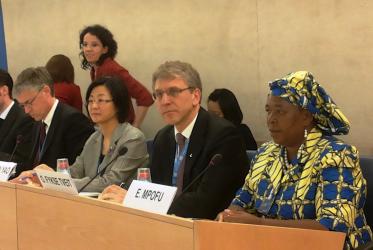Displaying 21 - 40 of 59
Re-engineering life forms: Church forum raises concerns
09 November 2017
UN discussion focuses on women, HIV and property rights
21 March 2017
WCC Executive Committee issues statement on climate justice
25 November 2016
Eco-justice at stake for Standing Rock people in USA
07 November 2016
Reclaiming our humanity
23 June 2015









